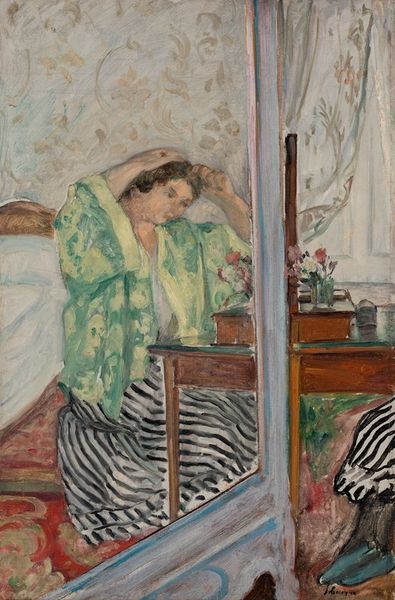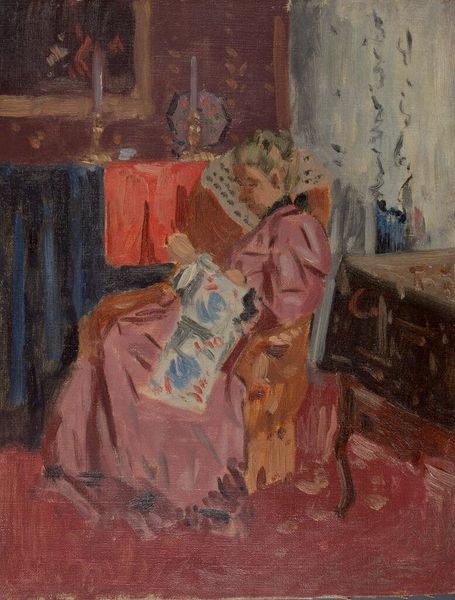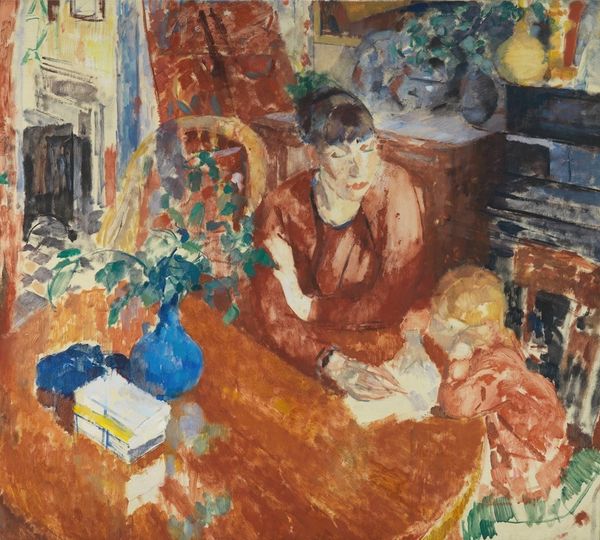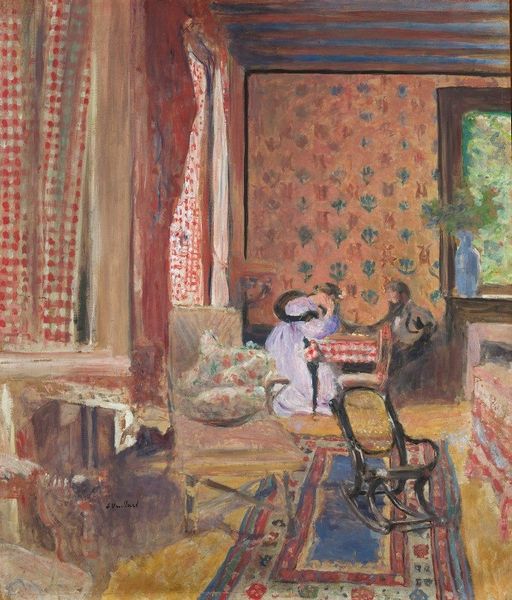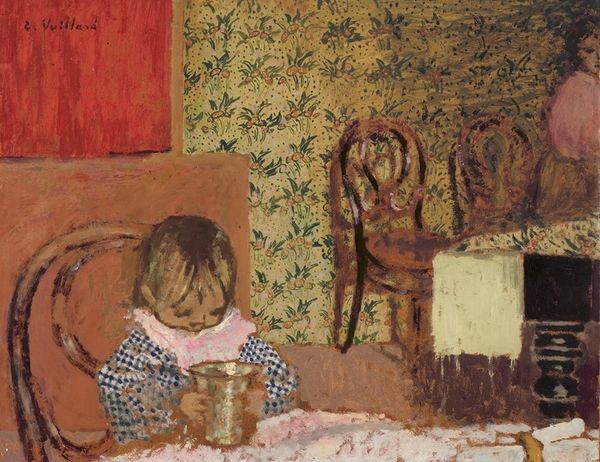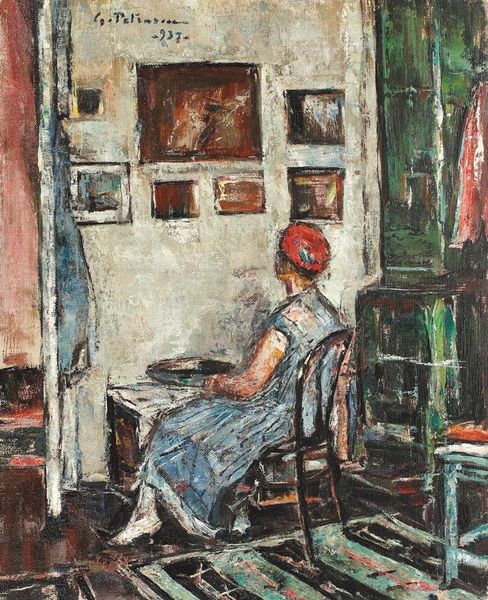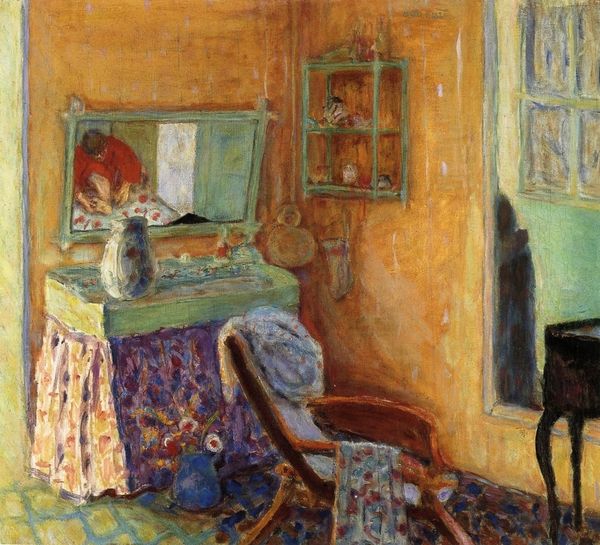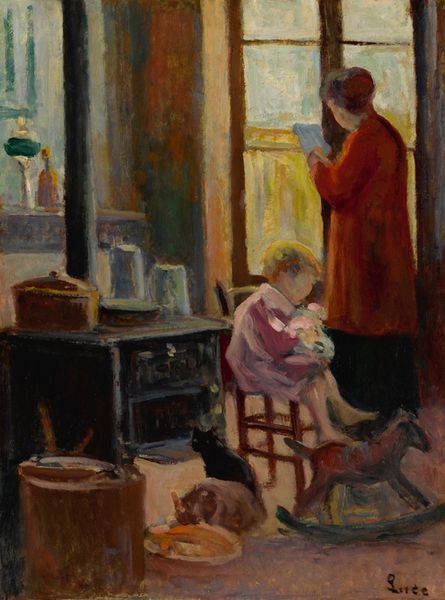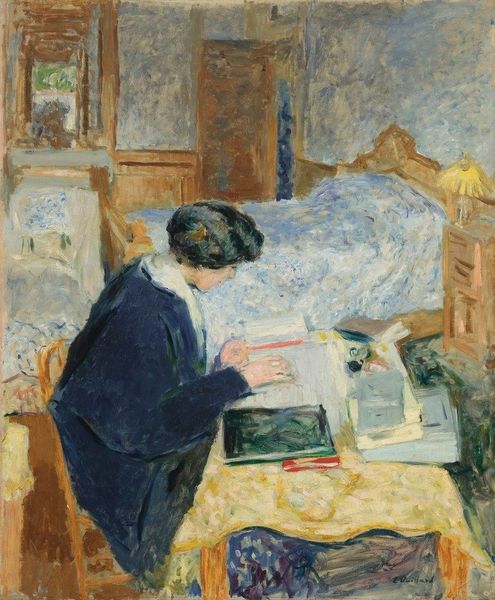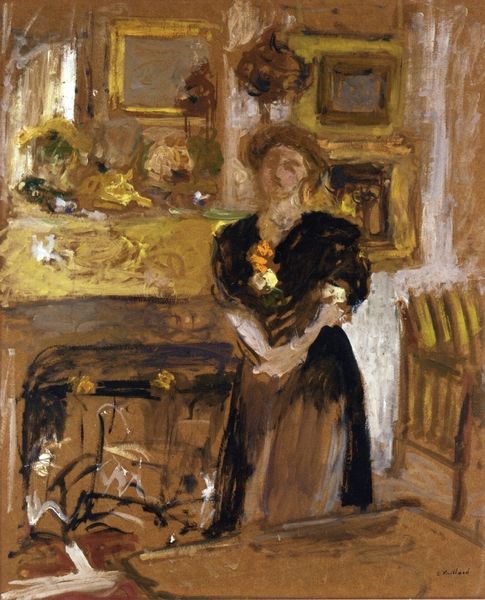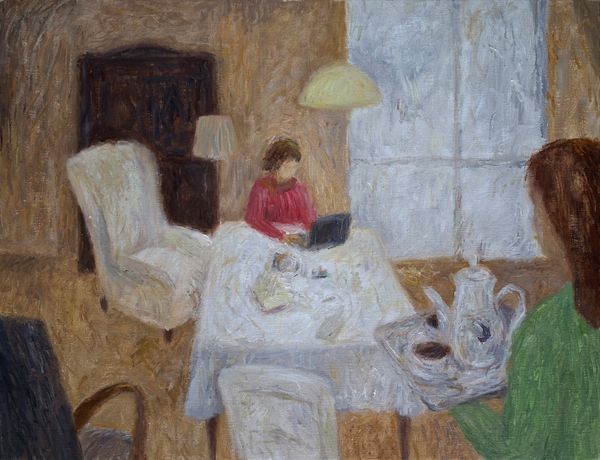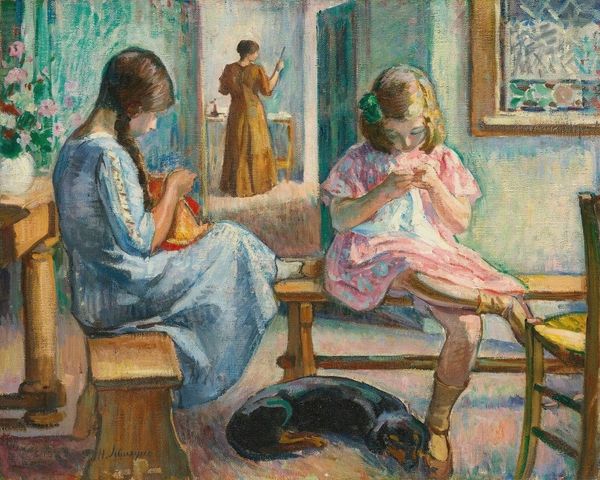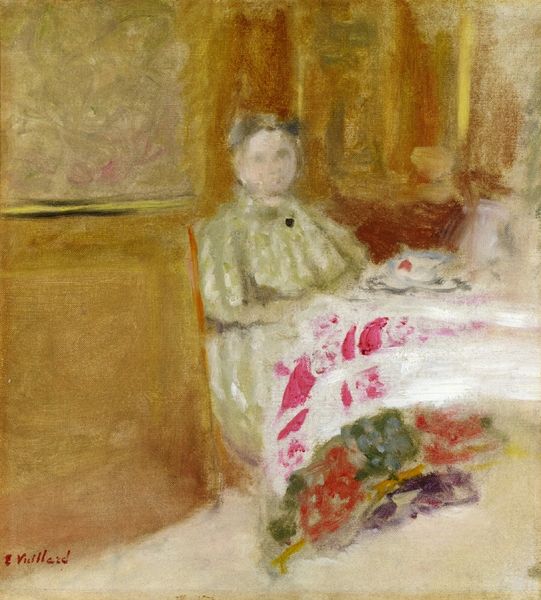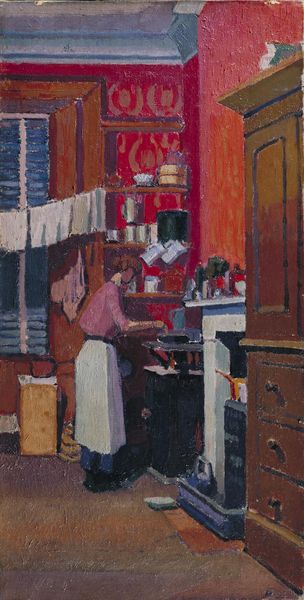
painting, oil-paint
#
portrait
#
painting
#
oil-paint
#
figuration
#
oil painting
#
intimism
#
genre-painting
Copyright: Public domain
Curator: Let's discuss Vasile Popescu’s oil painting, “Sewer.” It depicts an intimate interior scene. What are your initial impressions? Editor: My first thought is domesticity and constraint. There's a woman, enclosed in what appears to be a bedroom, focused intently on needlework. It evokes a sense of routine, maybe even isolation. The thick application of the paint amplifies the immediacy of the experience. Curator: Indeed, Popescu captures a timeless image of female labor within the private sphere. The needlework itself, often associated with patience and meticulousness, serves as a symbol of women's traditional roles. Is she making clothing perhaps? Or a covering? We are never quite sure but it is heavy in visual presence and feeling. Editor: And isn’t that role often undervalued, both historically and today? We must remember, labor such as sewing—typically delegated to women—can contribute directly to global supply chains. When considering the "sewer," one must think beyond gendered roles, questioning how contemporary global structures perpetuate exploitative and inequitable systems. Curator: The symbolism extends beyond gender roles. The window in the background suggests the world outside, but it's obscured by a curtain, hinting at both connection and confinement. Even the colors employed can offer insights. Red signifies activity, industry, and vibrancy. Conversely, the greens communicate themes such as wealth, status, or a class structure. Editor: That tension is crucial. The "intimism" here might seem benign, a snapshot of ordinary life. But art has the power to prompt conversation. Is it just quotidian activity or compulsory daily function? Looking at this piece with feminist theory as our lens we have a framework for resistance, a disruption of patriarchal norms that are subtly being expressed, being sewn perhaps into the art. Curator: Popescu gives us so much more to see in a room we might consider otherwise, quite ordinary. Editor: And now when I reflect, its message challenges me to ask where women may still feel that their agency is confined.
Comments
No comments
Be the first to comment and join the conversation on the ultimate creative platform.
